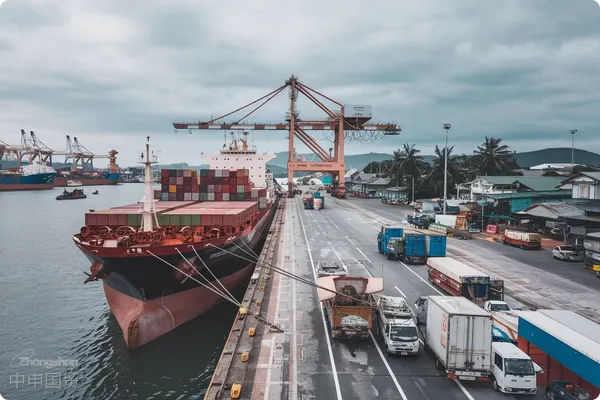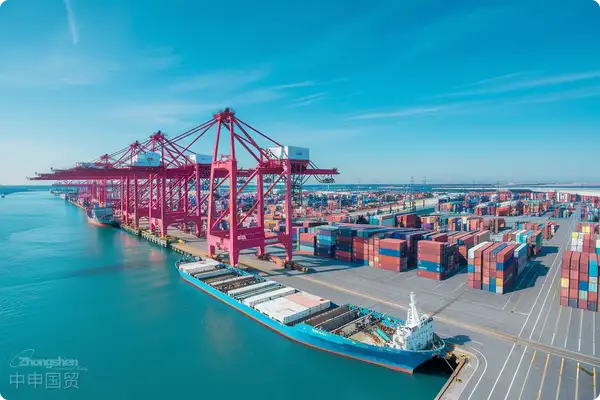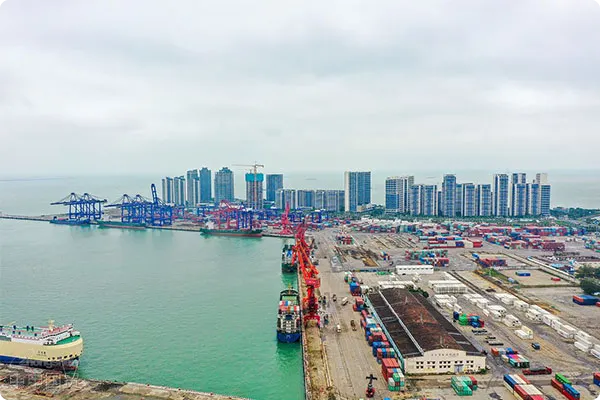- Shanghai Zhongshen International Trade Co., Ltd. - Two decades of trade agency expertise.
- Service Hotline: 139 1787 2118
In international trade, you may encounter a situation where a foreign customer asks you to sell goods directly to their customer and, after completing the transaction, return part of the profit to them. However, such an operation not only involves complex fund transfers but may also be related to multiple issues such as tax compliance, bank payment review, and foreign exchange management. How can you ensure the smooth progress of the transaction while avoiding tax risks and payment obstacles? This issues article will provide you with a detailed analysis of the key steps and response strategies behind this operation, helping you handle fund transfers safely and legally in international trade.

I. Operation steps
Clarify contract terms
a) Tripartite agreement:First of all, it is best to sign a clear tripartite agreement with the foreign customer, stipulating the responsibilities, obligations, and payment processes among you as the seller, customer A (your customer) as the intermediary, and customer B (the final buyer).
b) Customer confirmation:Ensure that customer B, the customer of customer A, agrees to accept the goods and clarify the payment method and conditions of the goods. This process helps to ensure that customer B will make the payment instead of increasing the payment risk.
Goods sales process
a) Export contract:As a supplier, you sign an export contract with customer B, agreeing on matters such as goods delivery, payment terms, and freight arrangements.
b) Collection of Payment for Goods:After the delivery of goods, Customer B (the end - buyer) shall pay the payment to your companys account in accordance with the contract. Ensure that the collection account meets the requirements of the bank and the tax department.
3、Commission Transfer Process
a) Profit Return:After receiving the payment from Customer B, calculate the profit of Customer A (the middleman) after deducting your cost of goods and necessary expenses. Transfer this part of the profit to Customer A according to the agreement signed with Customer A.
b) Commission Invoice:As the provider of intermediary services, Customer A should provide you with a commission invoice so that you have a legal basis for paying this profit. This payment actually belongs to commission payment.
II. Risks involved and countermeasures
Chain Reactions in the Supply Chain
a) Commission Tax:According to Chinas tax policies, for commissions paid overseas, a value - added tax and surtax of 5.5% are usually required to be paid. Although some tax bureaus may not enforce it strictly, once this tax is detected, it still needs to be paid up.
b) Tax Compliance Suggestions:Ensure that when paying this commission, you report it to the tax bureau and pay the relevant taxes as required. Avoid unnecessary fines or tax supplements in case of future tax inspections.
2、Bank Payment Review
a) Payment Proportion and Due Diligence:Banks usually review the amount of commission paid. Especially when the payment amount exceeds 10% of the value of the goods, the bank may require the provision of detailed due - diligence materials. This may include documents such as contracts, invoices, and payment certificates to verify the legality of the funds.
b) Compliance of the Collection Account:It is recommended to use a company account for collection and commission payment. A personal account may attract the attention of the bank, increase the complexity of fund transfer, and even lead to payment failure.
3、Foreign Exchange Management and Payment Restrictions
a) Foreign Exchange Payment Approval:In China, when paying commissions to foreign customers through a bank, foreign exchange payment approval is required. Banks usually require the provision of documents such as contracts, invoices, and customs declarations to prove the legality of the payment.
b) Legality of the Payment Reason:Ensure that your payment reason can pass the review smoothly in the bank system. When making a payment in the name of commission, it is usually necessary to submit relevant service contracts, prove the specific amount of the commission and the calculation method.
III. Operation suggestions
1、Legal and Compliance First:Ensure that the entire transaction process is transparent and legal. Especially, the profit distribution with Customer A should be recorded through formal contracts and invoices to avoid subsequent tax or fund supervision issues.
2、Choose the Appropriate Payment Method:It is recommended to use a company account for transactions and payments to ensure that the channels for fund inflows and outflows are legal and traceable. Avoid arousing the suspicion of banks or tax authorities due to personal account operations.
3、Tax Consultation and Planning:If you are not sure how to pay the relevant taxes, it is recommended to consult a tax advisor or financial personnel and make tax planning in advance to ensure the compliance of the payment process.
4、Bank Communication and Document Preparation:Communicate with the bank in advance, understand the requirements for large - amount fund transfers and commission payments, and prepare relevant contracts, invoices, and supporting documents to avoid payment failure or detention due to incomplete information.
IV. Summary
Fund transfer operations in international trade are often accompanied by many risks. However, through legal and compliant operations and advance planning, you can ensure the smooth progress of the entire transaction process. In addition, it is recommended to maintain communication with the bank to ensure the legality and compliance of payments, and consider handling such complex transactions through professional tax and legal advisors to ensure the smooth progress of the entire process.
Related Recommendations
Knowledge Base
Contact Us
Email: service@sh-zhongshen.com
Related Recommendations
Contact via WeChat

? 2025. All Rights Reserved. 滬ICP備2023007705號-2  PSB Record: Shanghai No.31011502009912
PSB Record: Shanghai No.31011502009912









